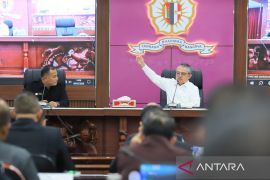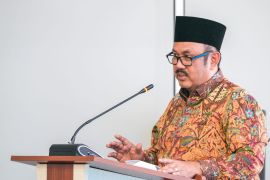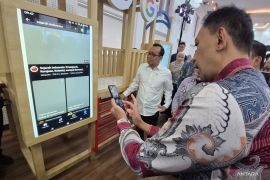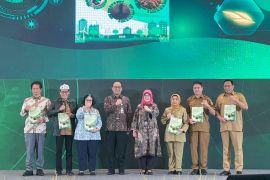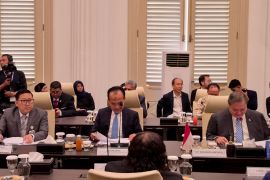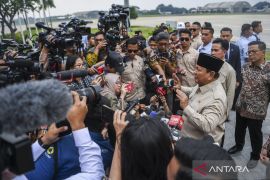Referring to this condition, former minister for education and culture Wardiman Djojonegoro said the education system in Indonesia had not yet matched the work field. "We have to design an education system which has a link and match with employment so that graduates would be absorbed easily by the work field," Wardiman said recently.
The high unemployment rate in Indonesia requires decision makers in the education field to reshape the education system and adjust it to the need of employment. One of the main problems faced by the government is to reduce unemployment and poverty rates.
Based on data at the Central Bureau of Statistics (BPS) there is now a total of 8.1 million unemployed people. Most of them are within the productive age between 20 and 40 years.
This is because, according to Wardiman, the pattern of education in Indonesia is not yet `friendly` with the work field. "Up to now there are still many education problems which remain unresolved, " the former minister said.
He said that the quality of schools should also be increased because companies needed quality graduates. Senior high school graduates, for example, should have had good command of basic English but in reality not many of them had the competency.
"I just show an example of one aspect, namely their command of English. Senior high school graduates must have a good command of English if they are willing to enter the international work market," the former education and culture minister told a seminar in Central Java last week.
In the meantime, Vice President Boediono raised the idea of the need to create a transitional program for fresh graduates to equip them with an arm to enter the work field or economic activities. "A program is needed for them to accelerate and speed up the transitional period into the field of economic activities," the vice president said in Serpong, Banten, on Friday.
Stressing the need for a transitional program, the vice president said that the government was open to a joint scheme that could produce a better condition for graduates during the transitional period before they enter the work field.
"I appeal to the people and educational foundations to jointly think of what could be done together to create concrete activities for our younger generations during their transitional period," the vice president said.
He said in the coming several years, Indonesia will face a population growth of young people who would enter the workforce and this constituted a dividend demography. This condition could serve as advantageous potential if the human resources quality was prepared well.
"I am convinced the dividend demography would come into reality. I truly believe it because we have great potentials," Boediono said.
However, he said, the population growth would serve as a barrier to development if the human resources were not well prepared as early as possible.
"Therefore, now we are not yet late. We have to prepare them now so that the constraint we face ahead would be overcome. If our economy grows well in the coming five years, the growth of young population would match it," the vice president said.
The same view was also expressed by Maritime Affairs and Fisheries Minister Fadel Muhammad. He said that education in the maritime and fisheries sector should be adjusted to the work need in the field.
Fadel will even invite rectors of a number of higher institutions to discuss curriculum in the maritime and fisheries sectors to be adjusted to employment need. "I will invite rectors to formulate curriculum which are adjusted to the market need," the minister said last Monday.
He said that there were complaints at present that the subjects taught in universities were often not adjusted to the need of a graduate to face employment. Adjustment to employment is important for university graduates so that their classifications would meet the need of various companies seeking workers.
After all, various countries need some 10,000 Indonesian workers in the maritime and fisheries sector every year.
Fadel said the high interest of both national and international companies to employ Indonesian workers in the maritime and fishery sector was seen in the International Job Fair on Marine and Fisheries (I`JO F.M 2011) last week.
Around 68 national and international companies, among others from Japan, China, Taiwan, South Korea, and Spain provided job opportunities to more than 10,000 workers from Indonesia in their marine and fishery sector, he said.
Therefore, Minister Fadel asked higher education institutes to create reliable and capable human resources for maritime and fishery sector in Indonesia.
"Higher Education Cooperation Forum has a strategic significance in the development of maritime-and-fishery-related education and the national development in maritime and fishery sector," Fadel said.
(T.A014/HAJM/F001)
Reporter: by Andi Abdussalam
Editor: Priyambodo RH
Copyright © ANTARA 2011

